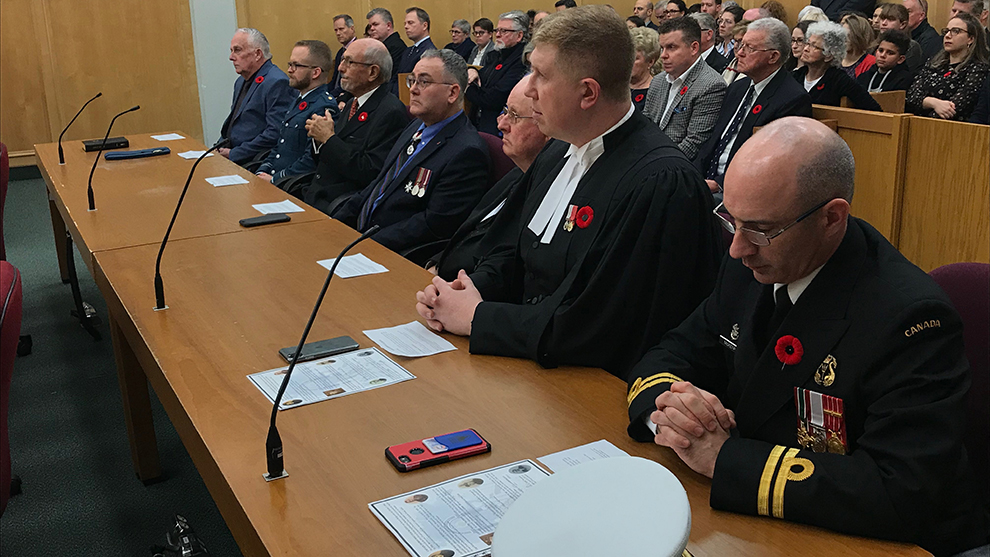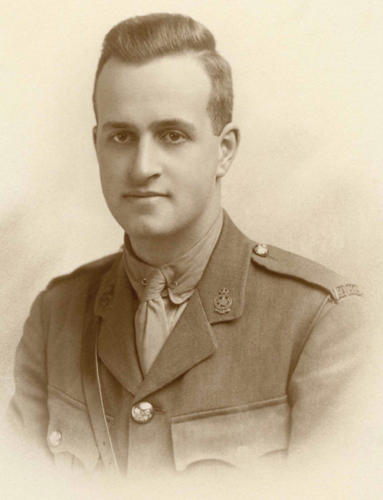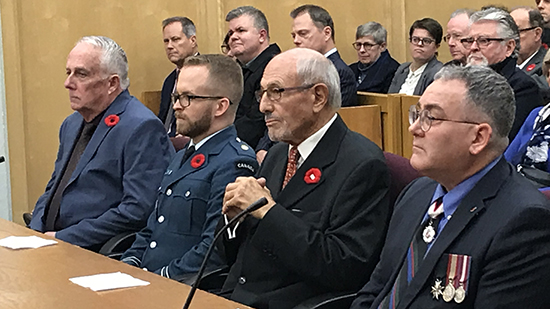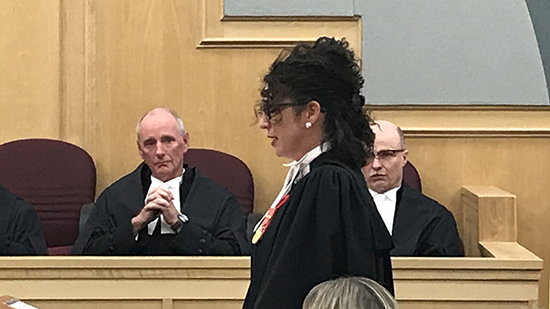Remembrance Day
Law students lost in war posthumously called to the bar in Halifax
Ceremony honours 11 Nova Scotians of the First World War who never came home

caption
A Canadian Armed Forces member takes off his hat for Friday's ceremony.David Irvine never met his distant cousin Lt. Walter Pickup. But on Friday, he got to take the lawyer’s oath on his behalf.
Pickup was killed in action in 1917.
The Nova Scotia Barristers’ Society held a commemorative call to the bar for Nova Scotia law students who went into the First World War and never returned.
Pickup is one of 11 men who were posthumously honoured.
“I never knew Walter,” said Irvine, although he did know one of his sisters in Granville Ferry, N.S., Pickup’s hometown.
Pickup was in his second year of law school at Dalhousie University in 1917, after finishing a Bachelor of Arts at Mount Allison.

caption
Lt. Walter Pickup wearing his Canadian military uniform in this undated photo.“He was a lieutenant when he went into the battle,” said Irvine. “But all of his officers above him were killed, and he was appointed an acting captain on the field. So he must have been a fairly upstanding young man.”
On the first day of the Battle of Vimy Ridge, he lost his life.
Irvine said the ceremony is important.
“It is a recognition of these young men,” he said. “They chose to go to war and to protect their country, and they died — at a very young age.”

caption
David Irvine prepares to take the lawyer’s oath on behalf of Lt. Walter Pickup.This is the first time a posthumous call to the bar has been done in Halifax, said Rebecca Hiltz LeBlanc, one of the Halifax lawyers organizing the event. Similar ceremonies have been held in or are planned for Ontario, Newfoundland and Labrador, British Columbia, Saskatchewan and Manitoba.
Hiltz LeBlanc has been a lawyer for 15 years, and served in the Canadian military reserves for 28. She said when she was asked about doing a posthumous bar ceremony in Nova Scotia, she immediately said yes.
“This tells the story of 11 men. They had lives, they had families, they had potential,” said Hiltz LeBlanc. “And all of that was lost.”

caption
Rebecca Hiltz LeBlanc gives a speech to begin the ceremony.She said it’s unknown if any of the men were conscripted into the war, but some had chosen to go, while still in law school or beginning their careers as articled clerks.
“It takes a special kind of person to put larger societal goals ahead of their own personal goals and aspirations,” said Hiltz LeBlanc. “And that’s exactly what these people did.”
In total, she said, 550 Canadian lawyers were lost in the First World War.
About the author
Julian Abraham
...

T
Ted Greely
M
Michael Shreve
P
Patrick Shea
D
Dina Dawson